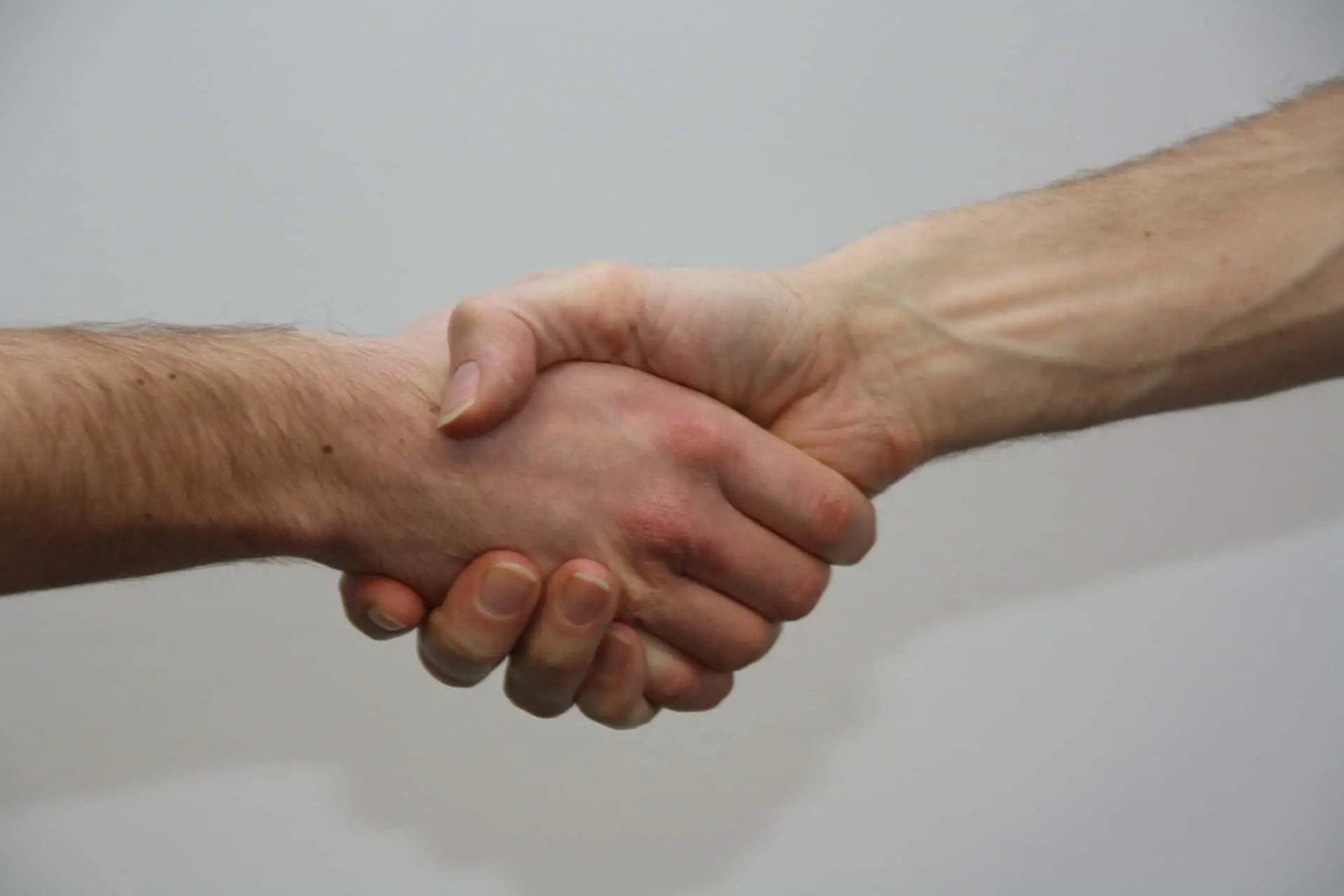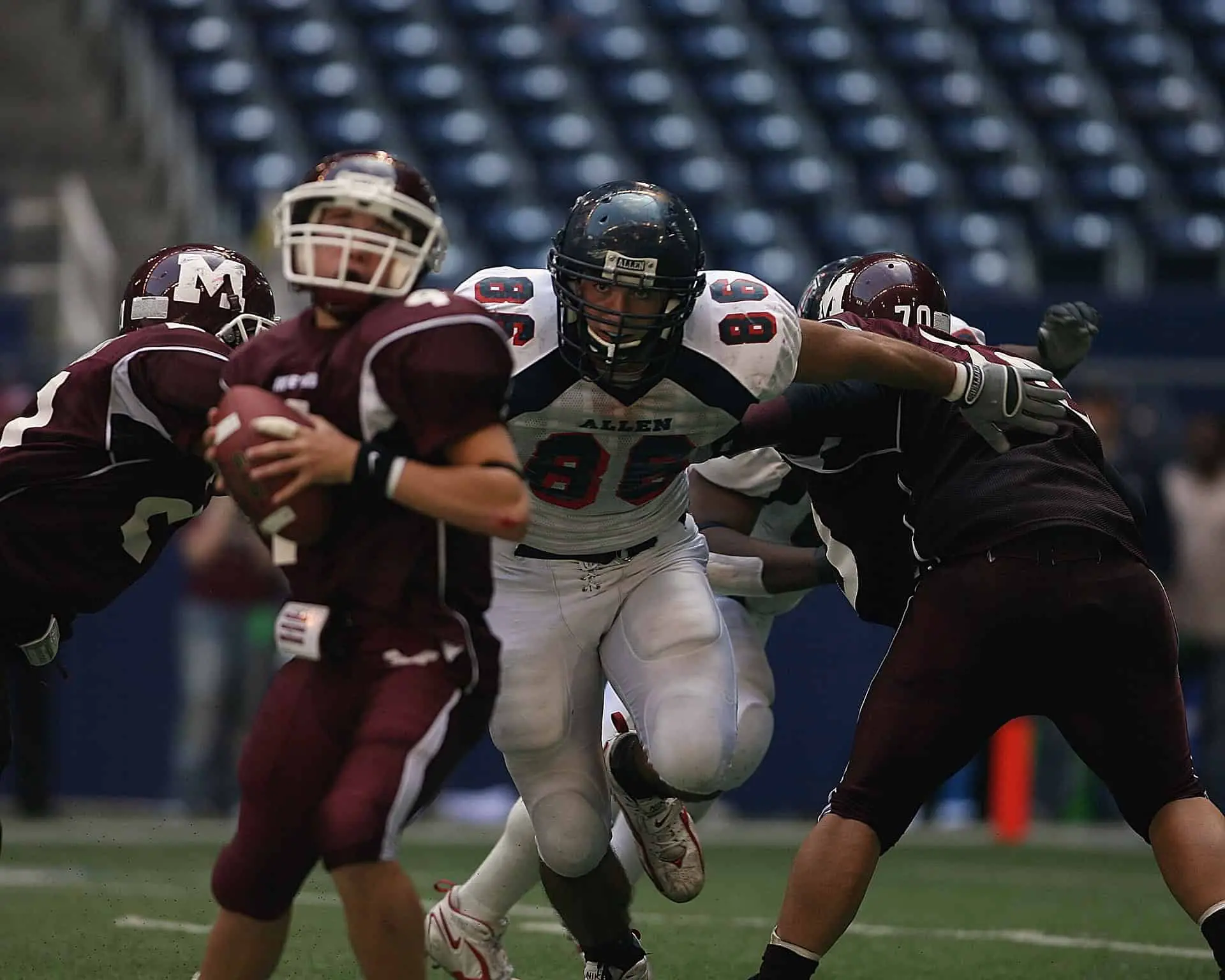Table of Contents
*This post may contain affiliate links. As an Amazon Associate we earn from qualifying purchases.
Coping skills are essential in dealing with the negative aspects we face in our life. We know that life is not all rainbows, and sometimes, it throws challenges at us. Whether we encounter addiction, the death of a loved one, or one of a host of personal issues, dealing with hardships is something we all must face. Athletes face many unique sources of stress, personal demands, athletic pressure, and performance expectations. Like all people, athletes need a list of coping strategies to manage professional and personal challenges. That is why everyone is on the lookout for a great list of coping skills.
Stress can manifest in so many ways on our bodies. It can take the form of heartburn, headache, insomnia, the risk of heart attack, high blood sugar, stomachache, and many other health symptoms. In athletes, it can not only affect performance on the field but off as well. That’s why it’s essential to have a list of coping skills at the ready when you need them.
With this list at your disposal, you’ll be well able to handle any kind of stress or pressure like a pro and remain at the top of your game.
Stresses Athletes Face

As mentioned, everyone faces stress in their lives, and the coping skills we have to deal with that stress is beneficial for all people. However, athletes encounter particular stresses that can affect their ability to perform. While the coping mechanisms may be the same, it’s important to prepare for pressures you, as an athlete, may face.
Competitive stress
The pressure before a game and worrying about how you will perform can cause stress in a player. Some of that stress is good. It helps you be the best you can be. But if you’re carrying too much stress, it can hinder your performance.Even if you’re an athlete who doesn’t play on a team, you’re competing with yourself. So, not only do athletes who play on teams need coping skills, but all athletes do.
Stress from coach
Although your coach wants you to play to the best of your ability, a good coach won’t put undue stress on a player. If you’re feeling immense stress from your coach, beyond the encouraging “go get ’em” feel, considering why you’re feeling that way. Feeling too much pressure from your coach could be coming from you or your coach. Where that stress is coming from will determine the best way to deal with it.
Team stress
You don’t want to let your team down. Nobody does. And team stress is a normal part of being an athlete, but if there’s conflict within the team causing stress, that’s different. Still, too much team stress, whether it be the fact that you don’t want to let them down or there’s something else going on within the team, it can negatively affect you. If you have a list of coping skills to deal with this kind of stress, you’re prepared.
Personal stress
As an athlete, you don’t just have pressures and stress from your sport, you have personal stresses as well. Dealing with a difficult situation, like a death or other major life event can affect you in your chosen sport. It’s not always easy to leave your personal life off the field, just like it’s not easy to leave athletic stress on the field.These coping skills will help you handle your personal stresses, so they don’t affect your athletic life and vice versa.
List of Coping Skills: Personal Approach
There are many ways of dealing with challenges on our own. In such cases, we tend to be intimately aware of the causes of our problems and how we can best deal with these issues. For many athletes, this may include performance issues or difficulties in maintaining motivation for training.
Try to write down how you feel
In the heat of the moment in sports, we must cope with problems as they arise. But once events subside, it is important to examine and learn from what worked (and didn’t work) to improve on-field performance.The first thing on our list of coping skills is writing down your thoughts about a current problem. It is one of the most effective coping techniques that can help you feel better. Journaling involves putting your feelings, and perceptions of life events in a notebook. Fill your journal with your experiences and your reflections concerning the challenges you face. By journaling, you can see where you are going, track your emotions, and manage your feelings. This self-exercise can be a huge help in your recovery and future dealings.Studies have found that there are countless benefits to journaling. It has been proven to have healing effects. Additionally, keeping a journal can help you connect your problem-solving skills and your emotions. Through putting your feelings on paper, you can encourage positivity by releasing negative energy, diverting your focus, and analyzing how you feel effectively.
Be positive
Next on our list of coping skills is looking at your life in a positive light. This technique can turn so many negative aspects of your life into more positive elements. Focusing on viewing each adverse event as a learning experience can help you to analyze the situation productively. And remember, it is very easy to get caught up in negative energy, so try to find one good thing about the position you are stuck in. This technique will help you to look at the event in a more balanced way.
Cry, yell, or hit the gym
This amazing technique made it into our list of coping skills because crying releases tension in your body. And if you experience tons of stressors, this can come in handy. When someone fails to cope up with a certain situation emotionally, crying is a great way to release undesired feelings. It is considered an essential human expression of an extreme emotional state. These emotions can be negative or positive. Crying can also be a form of catharsis, in which this release allows a person to face life feeling renewed. Crying releases adrenocorticotropic hormone (ACTH), a vital component of the hypothalamic-pituitary-adrenal axis that occurs when we encounter stress.Not comfortable crying? Try yelling in the middle of the woods or into your pillow — not at the other players. We’re not encouraging that, but when you’re alone. If you’re not comfortable with that, why not hit the gym? The point here is to let it out. Releasing your pent up emotions about a situation may make it easier to see the problem more clearly. That way when you approach this issue, you do so with a calm head.Enter your text here…
Spend time on your hobbies
Removing yourself from your current problem often helps. So leaving your sports issues behind for a quick break can benefit you. There are other things you love in life, and sometimes you need to shift your focus to gain perspective.Engaging in your hobbies is a fantastic way of coping. Hobbies can include anything that interests you. Despite the importance of hobbies, many people forget about them due to other commitments in their busy and stressful life. And although hobbies require you to sacrifice a bit of your time, engaging in them can bring you positive outcomes because it allows you to take a break.Furthermore, hobbies can be a useful social outlet for many people. For example, those who love to golf or to attend book clubs, these activities provide social interaction while doing activities they enjoy. This added element of social support can bring you stress relief. Next, doing pleasurable things can significantly lift your mood. So finding time to do what you love every now and then can give you a definite sense of happiness.
Be honest
There are tons of people who cope by lying. Although this brings them temporary relief, the adverse effects that this brings can be immensely damaging. That can become a bad habit. Addressing an issue straight on with a clear head, and being as honest as possible, is the best way to go. Sometimes conflict is hard, but conflict resolution is essential in keeping team morale.You don’t want to erode your team’s trust, so as mom always said, “honesty is the best policy.”
Validate yourself
Validation means to express understanding and acceptance of someone’s experience. And self-validation means to accept your own experience, thoughts, and feelings. Without this, you can increase your emotional upset.Your attitude towards yourself will play a huge role in how you cope with a specific stressor. Make sure that you stay positive. Talk to yourself in a positive light so you can eliminate negative thoughts. Knowing how to validate yourself involves accepting your experiences.Validating yourself can calm you down and help you manage your thoughts and feelings. It is particularly useful in handling the athletic stressors mentioned above.
Use humor
One effective way to help you cope with challenges is to maintain a sense of humor. In fact, laughing has tons of benefits. It has been proven to reduce cortisol, dopamine, epinephrine, and other stress hormones, as well as increase endorphins in your body. No matter how long a list of coping skills you consider, without a positive disposition, they will be useless.Humor can provide you with a more positive perspective on problems so you can look at them as challenges instead of threats. Giving yourself things to laugh about can make you more lighthearted. If you exercise this coping skill, you will be less stressed about hardships you encounter. Athletes, in particular, can benefit by viewing professional challenges from a more holistic perspective of one’s life. And humor helps.
List of Coping Skills: Physical Approach

There are effective ways of coping with problems involving physical means. Moving your body, particularly for athletes, serves as an effective method for dealing with adversity.
Try a physical activity
Physical activities provide many benefits. They can improve your physical state and help you fight diseases. That is why doctors have always encouraged people to stay active. And if your body is in top condition, it’s easier to deal with stress. Without a doubt, physical activity is something you should consider on our list of coping skills.As an athlete, you probably already know that physical activity can help your body produce more endorphins. These chemicals are essential because it acts as our body’s natural painkillers. There have been countless theories in psychology that connect exercise in building confidence, flexibility, and emotional stability. In fact, in a recent study, athletes exhibited a more elevated method of problem-oriented coping strategies and reported less stress. So staying active is key for athletes as well as everyone else.
Get enough sleep
All items on our list of coping skills are useless if you are not getting enough sleep. Sleep deprivation can significantly affect your mood and the way you think. If you do not get enough sleep, you are more likely to become more emotional. To help you sleep better, establish a strict bedtime routine. Rest should be a top priority. Avoiding screens such as televisions, phones, and computers before bed can also help you. That is because screen time suppresses melatonin release in the brain, which can make it harder for you to fall asleep. If you want to look for something else to do before bed, try reading a book instead.Getting enough sleep gives you the strength to face the next day with more vigor. Adults should target from seven to nine hours of sleep daily. One surefire way to help you increase the quality of your sleep is to improve sleep hygiene.Try meditationMediation is the go-to method for many people to cope with their problems. That is why we have included it on our list of coping skills. Meditation is a great way to improve one’s well-being and mental health. It can also help you with your efficiency and productivity. The calming effects that meditation can bring can have an incredible impact on your body including your cardiovascular health, immunity, and nervous system. Meditation is also a great way to put your mind and body to rest.And meditation allows athletes to perform better in stressful situations. A tense game situation can distract athletes from focusing on performing at their peak ability. However, meditation can focus an athlete on what they must do in order to achieve their desired objective. So it helps bring out the best performance of athletes when it is needed most.
Talk to someone
Sports provide athletes with regular challenges that can detract from maximum performance. It can seriously affect both their personal and professional lives. It is essential to learn how to deal with adversity when it arises effectively. And everyone needs a list of coping skills to consult.Humans have complex emotions, and coping with challenges that we face can be difficult. Knowing that we can get through a hurdle by exercising an effective coping mechanism provides a strong feeling of empowerment. It is vital to be aware of coping strategies so you can deal with stress more efficiently. Just remember that there is a myriad of methods to choose from in this list of coping skills, and you will eventually find one that will work best for you.How do you best cope with difficult situations as an athlete? Share your strategies in the comments!
Let This List of Coping Skills Get You Through Tough Times

Sports provide athletes with regular challenges that can detract from maximum performance. It can seriously affect both their personal and professional lives. It is essential to learn how to deal with adversity when it arises effectively. And everyone needs a list of coping skills to consult.Humans have complex emotions, and coping with challenges that we face can be difficult. Knowing that we can get through a hurdle by exercising an effective coping mechanism provides a strong feeling of empowerment. It is vital to be aware of coping strategies so you can deal with stress more efficiently. Just remember that there is a myriad of methods to choose from in this list of coping skills, and you will eventually find one that will work best for you.How do you best cope with difficult situations as an athlete? Share your strategies in the comments!

